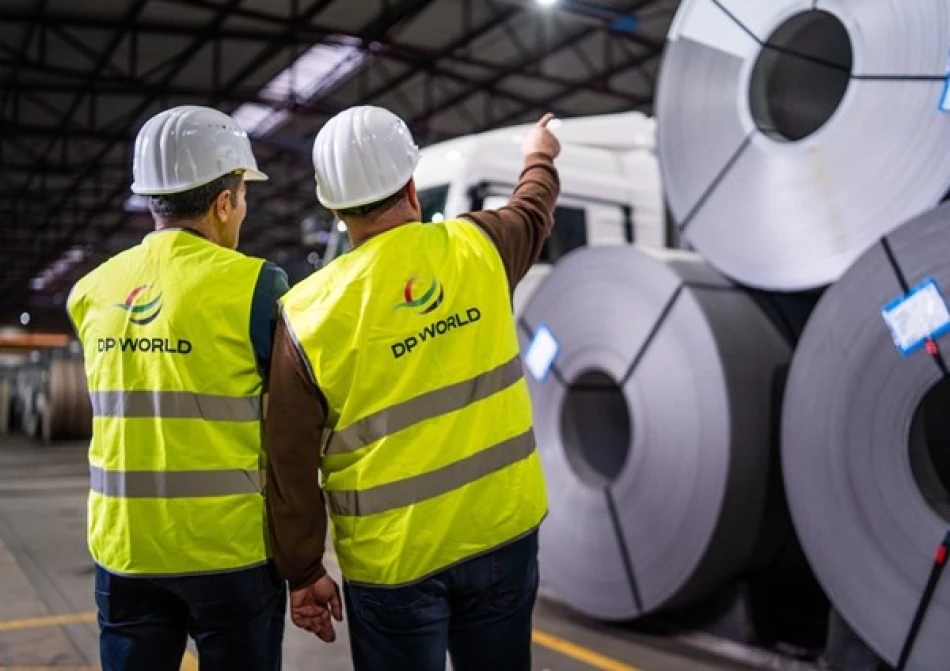
DPWorld Invests $2.5B to Expand Global Logistics Infrastructure
DP World's $2.5 Billion Infrastructure Gamble Signals Global Trade Route Realignment
Dubai's DP World is deploying $2.5 billion in 2025 to build logistics infrastructure across five strategic markets, creating 5,000 immediate construction jobs while positioning itself at the center of emerging trade corridors. The investment spans India, the UK, Ecuador, Senegal, and the Democratic Republic of Congo—a geographic spread that reveals how global supply chains are diversifying beyond traditional Western hubs.
Strategic Geography Drives Investment Allocation
The investment distribution tells a compelling story about where DP World sees future trade growth. India commands the largest share with 2,500 jobs split between a new terminal in Tuna Tikra (2,000 positions) and rail and inland terminals (500 positions). This reflects India's emergence as both a manufacturing powerhouse and consumption market that could rival China's historical dominance in global trade.
Africa captures significant attention with two deep-water port projects: 600 jobs at Senegal's new Ndaian port and 500 at the Democratic Republic of Congo's first deep-water facility at Banana port. These investments align with the African Continental Free Trade Area's implementation, potentially unlocking intra-African trade worth $25 billion annually.
Europe and Latin America Complete the Global Puzzle
DP World's $1 billion expansion of London Gateway in the UK will generate 1,000 construction jobs, with the facility expected to become Britain's largest port by decade's end. This timing coincides with post-Brexit trade route adjustments and the UK's pivot toward Commonwealth and emerging market partnerships.
In Ecuador, the expansion of DP World Posorja will create over 300 construction positions plus 100 direct operational roles, strengthening South America's Pacific coast connectivity as trade flows increasingly orient toward Asia-Pacific markets.
Employment Multiplier Effects Signal Deeper Economic Impact
Sultan Ahmed bin Sulayem, DP World's Chairman and CEO, emphasized the long-term vision: "When projects are completed, construction workers will leave behind a legacy of leading logistics infrastructure that will benefit customers, communities and continents for the next fifty years."
The immediate 5,000 construction jobs represent just the beginning. These projects will generate thousands of additional direct and indirect positions once operational, creating economic multiplier effects in their respective regions. DP World already employs over 100,000 people directly through its global supply chain solutions division, while Dubai's Jafza free zone alone hosts 160,000 direct employees.
Market Implications for Global Trade Infrastructure
This investment wave positions DP World to capitalize on several converging trends: nearshoring of manufacturing, Africa's industrialization, and the need for supply chain resilience following recent global disruptions. Unlike competitors focused primarily on established routes, DP World is betting on emerging corridors that could define trade patterns for the next generation.
The strategy mirrors similar moves by Singapore's PSA International and China's COSCO, but with a distinctive focus on frontier markets that offer higher growth potential despite greater political and economic risks. For investors, this represents either prescient positioning for the next phase of globalization or significant exposure to developing market volatility.
The success of these projects will largely determine whether DP World can maintain its position among the world's top three port operators while traditional shipping giants grapple with overcapacity in established markets.
Most Viewed News

 Layla Al Mansoori
Layla Al Mansoori






